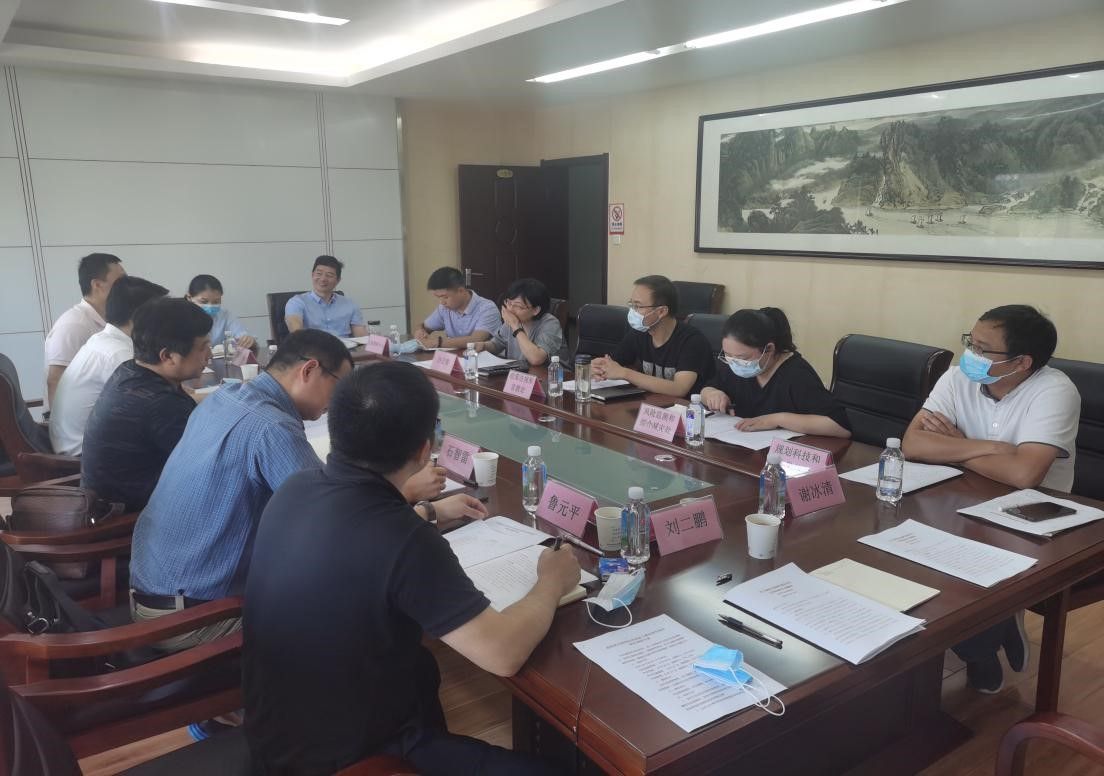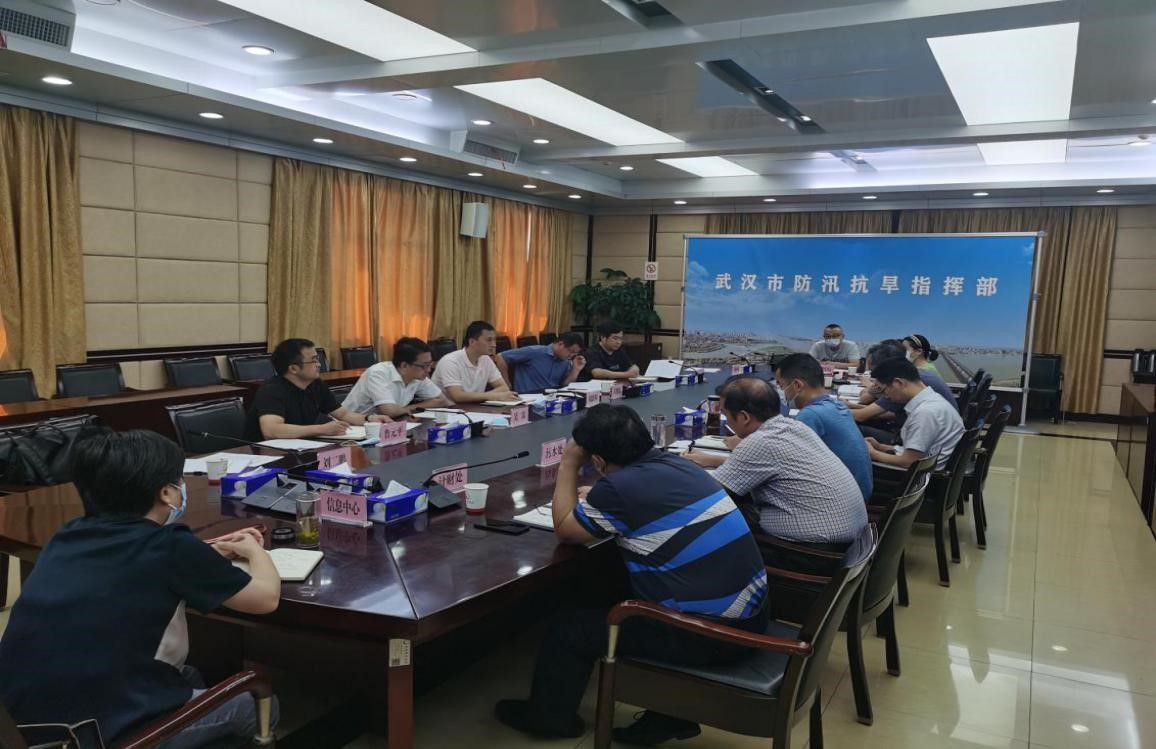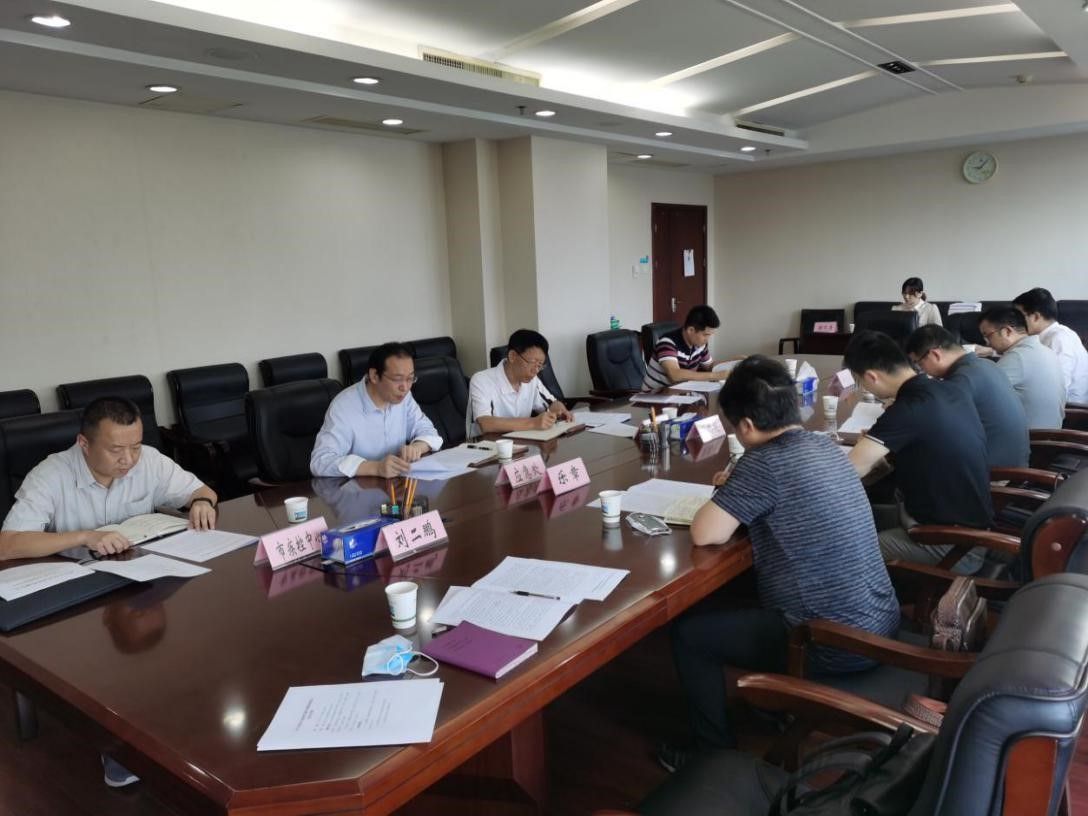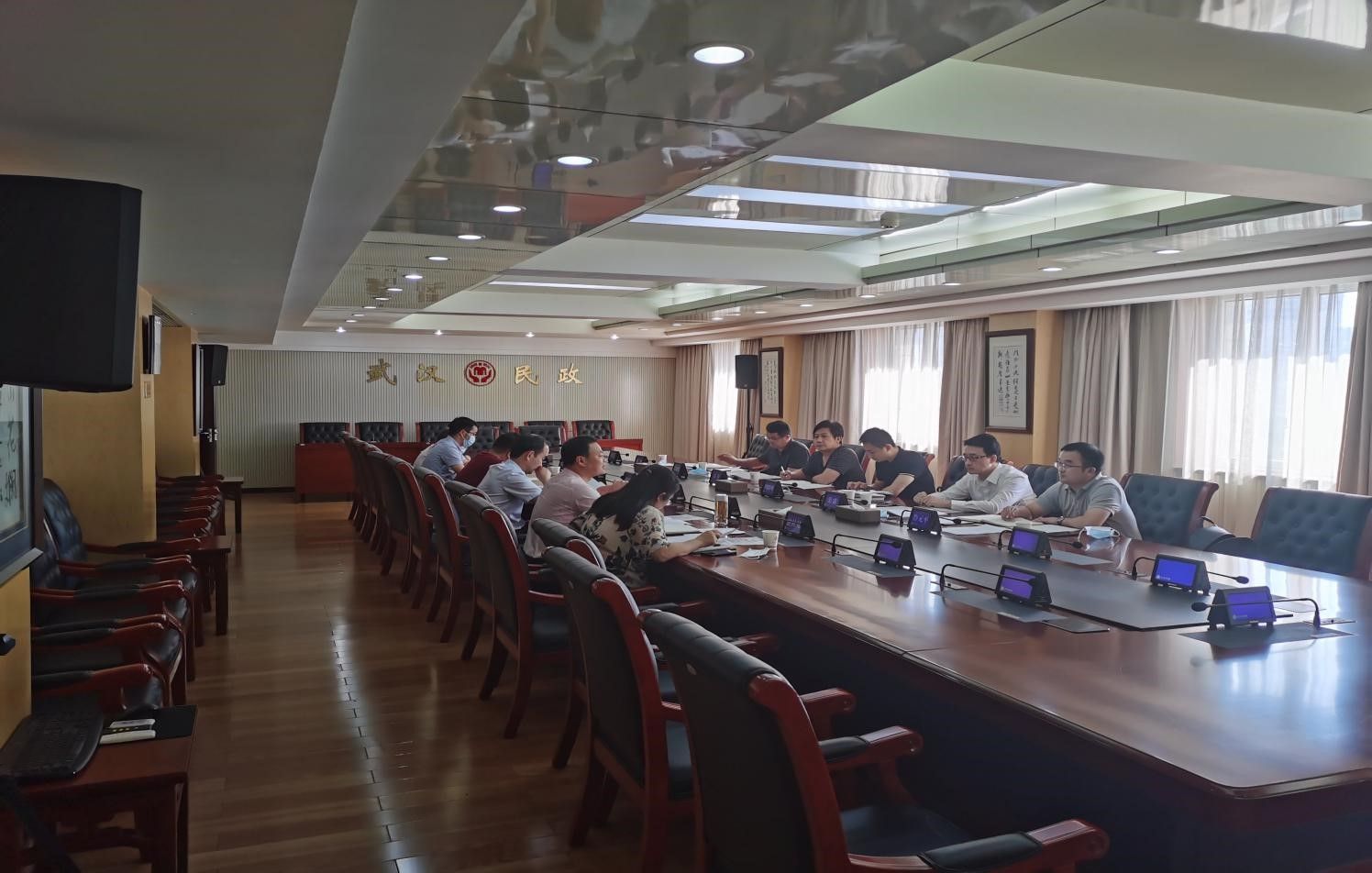(Reporter: Liu Erpeng, Fan Weilin) Commissioned by the Wuhan Municipal Government Decision-making Advisory Committee, the "Improving Wuhan's Urban Risk Resilience and Building a Resilient City" project team, led by Professor Yang Canming, Vice Chairman of the Wuhan Municipal Government Decision-making Advisory Committee and President of IIDPF, visited Wuhan Municipal Emergency Management Bureau, Wuhan Municipal Water Affairs Bureau, Wuhan Municipal Health and Health Commission and Wuhan Municipal Civil Affairs Bureau from 26 to 27 August.
The composition of the Working Group fully reflects the University's strengths in economics, management and law, as well as the IIDPF's characteristic of being a think tank that combines a focus on cutting-edge developments with a grounded approach. The membership consists of professors, young PhDs and postgraduate students in the fields of applied economics, emergency management, civil and commercial law, and information science. The team includes Professor Lu Yuanping, Associate Dean of IIDPF, Professor Le Zhang, Research Fellow, School of Public Administration, Professor Shi Zhilai, Research Fellow, School of Public Administration, Professor Wu Lei, Research Fellow, Wenlan School of Business, Associate Professor Tian Binbin, Research Fellow, School of Public Finance and Taxation, Dr Xie Bingqing, Research Fellow, School of Law, Dr Liu Erpeng, Research Fellow, and more than 20 PhD and Master students from the School of Public Finance and Taxation, School of Public Administration and other schools.
On the morning of 26 August, the working group first visited the Municipal Emergency Management Agency. At the seminar, the working group had an in-depth discussion with the staff of the Wuhan Emergency Management Bureau on "the current situation of emergency management in Wuhan, problems in the work and related suggestions". During the study, the working group had a detailed understanding of the basic responsibilities of the Emergency Management Bureau, the 14th Five-Year Plan and information system construction of the emergency response system, the implementation of the Comprehensive Disaster Prevention and Mitigation Plan, the Comprehensive Disaster Prevention and Mitigation Work Programme, the stockpiling of emergency supplies and the emergency management of grassroots communities. The participants discussed the role of the Emergency Management Agency in building a "resilient city" and how to improve emergency management capacity for disasters and emergencies in the context of big data sharing. Finally, the working group received suggestions from the Emergency Management Bureau staff on the reform of the emergency management system in the context of modernising the social governance system and capacity in Wuhan.

On the afternoon of 26 August, the working group visited the Municipal Water Authority. In 2020, the Yangtze River basin erupted in a historically unprecedented flood, and under the unified command and coordination of the Municipal Flood Control Command and the joint efforts of all parties, the flooding period was smoothly and successfully weathered, and a decisive victory was achieved in the fight against flooding. At the seminar, the working group had an in-depth exchange with the staff of the Municipal Water Affairs Bureau on "the basic situation of flood and drought control in Wuhan, problems and experiences". The Water Affairs Bureau staff introduced specifically the city's flood control facilities, the construction of the flood control and security systems, the basic situation of sewage management, water supply security, the implementation and experience of the command and control of flood and inundation emergency rescue and emergency enhancement measures in Wuhan in recent years. The Water Affairs Bureau also gave a special presentation on the status of the implementation of the "sponge city" in Wuhan in recent years and the fundamental role and effect of the "sponge city" construction in flood prevention, who also explained the situation of sewage treatment after flooding. During the session, the Water Authority answered all the professional questions raised by the ZUEL faculty.

The Health Commission has played an important role in the prevention and control of the pandemic this year. It is also this COVID-19 pandemic that has led us towards a deeper reflection on the resilience of urban public health emergencies. At a seminar held on the morning of 27 August, the working group received a briefing from the Health and Wellness Commission on the prevention and control of the epidemic in Wuhan, a summary of the lessons learnt from the "Wuhan Defense" and the deployment of future work on public health emergencies. The working group had an in-depth exchange with the relevant departments of the Health and Welfare Commission on the actual situation and lessons learnt from this year's epidemic, the current status and operational mechanism of the public health emergency management system, the " collaboration" of various functional departments in emergency situations, and the evaluation of the effectiveness of prevention and control of public health incidents. In conclusion, the working group received the recommendations of the Health and Wellness Committee staff on the construction of a public health emergency management system and the improvement of risk resistance in major disasters in Wuhan.

Community prevention and control is a priority in pandemic prevention. The working group members always remembered the spirit of General Secretary Xi's speech during his visit to Wuhan to inspect the prevention and control of the pandemic, and never forgot the two important fronts in the fight against the pandemic: the hospital front for saving lives and the community front for prevention and control. The key to effective pandemic prevention and control lies in the community, as grass-roots work is of vital importance. On the afternoon of 27 August, the working group visited the Wuhan Civil Affairs Bureau. There was a lively discussion around building a grassroots community disaster and pandemic response system. The working group listened to a presentation by the Civil Affairs Bureau staff on the basic situation of Wuhan in terms of community staffing, social organisations, service capacity and coordination mechanisms, whose focus was on understanding the construction of emergency facilities for disaster and epidemic prevention in the city's communities, the deployment of resource reserves, and the mechanism and operation of multi-body linkage between communities and the government, social organizations and volunteers. At the same time, the working group had a thorough understanding of the integration of the community's grid-based management with intelligent tools such as the Internet and big data.

Through this research, we have obtained a lot of first-hand information and relevant data, and have gained a deeper understanding of the situation related to the resilience of Wuhan and the construction of a resilient city. We will continue to carry out relevant research work in accordance with the deployment requirements of the Wuhan government leadership. Our next step will be to visit Shanghai, Hangzhou and other cities to conduct field research and learn from their "resilient city" construction experience, in order to complete the requirements of this project in a high-quality and efficient manner.
